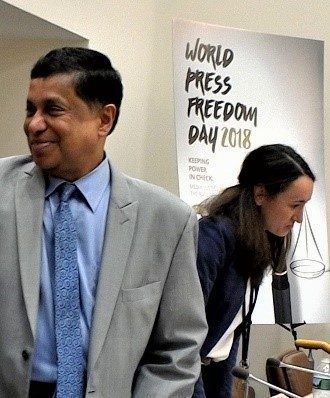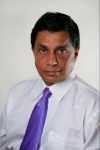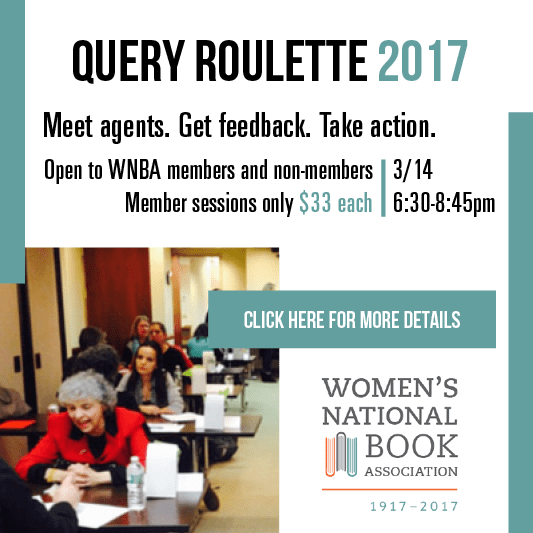
Ramu Damodaran, UN DPI; Marie Bourreau, Le Monde. Photo: Marilyn Berkman
By Marilyn Berkman, WNBA Representative to the UN
A high-level briefing with panel discussion to commemorate World Press Freedom Day 2018 was held at UN headquarters in New York on May 3. Because of a recent attack in Afghanistan on journalists and media workers that had killed 10, including those personally known to the speakers, the emphasis was on the safety of journalists and how violence is used to attempt censorship. Particularly in danger are local journalists after major international news organizations depart a conflict area, and also other local media workers and connections, such as the “fixers” who enable journalists to get the story from different sides. Women face additional difficulties, and they must be tenacious and quick witted to literally survive, much less report.
 François Delattre, Permanent Representative of France to the UN, opening the panel discussion, explained that international media rely on locals to cover abuses by their governments. In turn, the governments try to silence or discredit them. Most journalists who are killed are killed in their home country.
François Delattre, Permanent Representative of France to the UN, opening the panel discussion, explained that international media rely on locals to cover abuses by their governments. In turn, the governments try to silence or discredit them. Most journalists who are killed are killed in their home country.
 Marie Bourreau, Correspondent for Le Monde and Radio France Internationale at the UN, recalled her five years in Afghanistan as a young journalist who was eager but without training for bad situations. In 2006 she worked on a story about the return of the Taliban, and her fixer got her an interview with a Taliban “big fish.” Weeks later, an Italian journalist new to the area used the same fixer and driver to meet the same Taliban group. He was captured, and the others killed. Things are worse now if the Taliban are specifically targeting journalists. Government security forces are weak, and without money to get community support, journalists are in a war with no frontlines. Bourreau called for a special UN representative for journalists so that they are aware of their rights.
Marie Bourreau, Correspondent for Le Monde and Radio France Internationale at the UN, recalled her five years in Afghanistan as a young journalist who was eager but without training for bad situations. In 2006 she worked on a story about the return of the Taliban, and her fixer got her an interview with a Taliban “big fish.” Weeks later, an Italian journalist new to the area used the same fixer and driver to meet the same Taliban group. He was captured, and the others killed. Things are worse now if the Taliban are specifically targeting journalists. Government security forces are weak, and without money to get community support, journalists are in a war with no frontlines. Bourreau called for a special UN representative for journalists so that they are aware of their rights.

Elisabet Cantenys, Executive Director, ACOS Alliance, declared journalism the most vulnerable profession. In the past, news organizations have shared information but not coordinated for safety. No distinction should be made among journalist, freelancer and fixer. ACOS wants to make access and safety of equal importance by setting up a program for organizations to share mechanisms and training, emphasizing safety conditions for freelancers and giving all journalists access to basic international insurance.
 Steve Coll, Dean & Henry R. Luce Professor of Journalism, Columbia School of Journalism, felt that in the US, the First Amendment continues to enjoy support from judges but there is pressure from populist rhetoric that questions credible media. Publishers, editors and broadcasters have lost control of their content through social media platforms with the ability of AI as a weapon of deceit—for example, to splice videos together to create false content.
Steve Coll, Dean & Henry R. Luce Professor of Journalism, Columbia School of Journalism, felt that in the US, the First Amendment continues to enjoy support from judges but there is pressure from populist rhetoric that questions credible media. Publishers, editors and broadcasters have lost control of their content through social media platforms with the ability of AI as a weapon of deceit—for example, to splice videos together to create false content.
 Loubna Mrie, photojournalist and Syrian activist, is now a student at New York University. She grew up believing that whatever she said even in her own house could lead to punishment. In 2011, 19 and naïve, she marched for change in Syria. That year more than 7000 Syrians were killed. No foreign press were allowed in 2011 and 212. Mrie found journalists to train her, then in 2012 fled to Turkey for better training. From 2013 through 2014 she worked for Reuters, going back and forth into Syria, until she found herself on the run from army groups she was documenting. She made it to New York, and her mentor got his family out, but he was killed in Turkey. She agreed local journalists don’t know their rights.
Loubna Mrie, photojournalist and Syrian activist, is now a student at New York University. She grew up believing that whatever she said even in her own house could lead to punishment. In 2011, 19 and naïve, she marched for change in Syria. That year more than 7000 Syrians were killed. No foreign press were allowed in 2011 and 212. Mrie found journalists to train her, then in 2012 fled to Turkey for better training. From 2013 through 2014 she worked for Reuters, going back and forth into Syria, until she found herself on the run from army groups she was documenting. She made it to New York, and her mentor got his family out, but he was killed in Turkey. She agreed local journalists don’t know their rights.
 Moderator Ramu Damodaran, Deputy Director for Partnerships and Public Engagement Chief, UN Academic Impact, Outreach Division, DPI, stressed that media are at the forefront while the rest of the world wants to look away.
Moderator Ramu Damodaran, Deputy Director for Partnerships and Public Engagement Chief, UN Academic Impact, Outreach Division, DPI, stressed that media are at the forefront while the rest of the world wants to look away.
Discussants from the floor included Whitney Hurst, Senior Producer, Al Jazeera English; Rob Mahoney, Committee to Protect Journalists; and Margaux Ewen, North American Director, Reporters Without Borders.

Juliane von Reppert-Bismarck, Belgian journalist and founder of Lie Detectors, was to have been on another panel at the UN that was cancelled because a participant was going to name countries where journalists are jailed. Lie Detectors go to schools in Europe to re-establish trust in journalism and explain how getting something wrong is different from actual lying.





